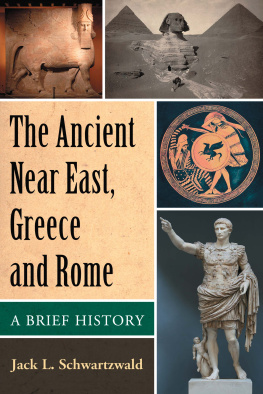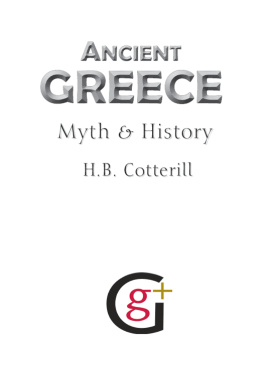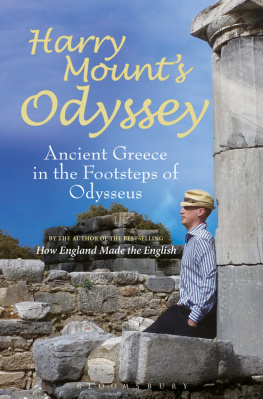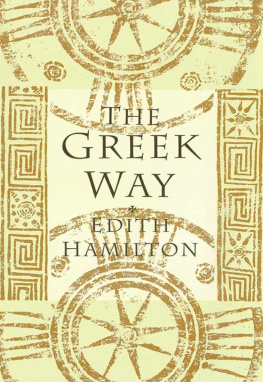A History of Western Thought
A History of Western Thought is a comprehensive introduction to the history of Western philosophy from the pre-Socratics to the twentieth century.
Along with in-depth discussion of all the major philosophical movements, Skirbekk and Gilje also look at the historical factors that have influenced Western philosophy, including the natural sciences, social sciences, and humanities, as well as political ideologies such as liberalism, socialism, and fascism.
A History of Western Thought is an ideal introduction to philosophy and the sociological and scientific structures that have shaped modern philosophy.
Areas covered include:
Plato
Aristotle
the Middle Ages
the Renaissance and realpolitik
doubt and belief
Locke
the Enlightenment
utilitarianism and liberalism
Kant
Hegel
Marx
Kierkegaard
Darwin
Nietzsche and pragmatism
socialism and fascism
Freud and psychoanalysis
the rise of the social sciences
a glance at contemporary philosophy
modernity and crisis.
Gunnar Skirbekk and Nils Gilje are professors of philosophy at the University of Bergen, Norway.
A History of Western Thought
From ancient Greece to the twentieth century
Gunnar Skirbekk and Nils Gilje
First published 1972 as Filosofihistorie by Scandinavian University Press
second edition 1976, third edition 1980, fourth edition 1987,
fifth edition 1992, sixth edition 1996,
seventh edition 2000 Scandinavian University Press
English translation first published 2001
by Routledge
11 New Fetter Lane, London, EC4P 4EF
Simultaneously published in the USA and Canada
by Routledge
29 West 35th Street, New York, NY 10001
Routledge is an imprint of the Taylor &Francis Group
2001 Gunnar Skincekk and Nils Gilje
translation 2001 Routledge
Translated into English by Ronald Worley
Typeset in Perpetua and Grotesque by The Running Head Limited, Cambridge
Printed and hound in Great Britain by TJ International Ltd, Padstow, Cornwall
All rights reserved. No pa rt of this book may be reprinted or reproduced or utilized in any form or by any electronic, mechanical, or other means, now known or hereafter invented, including photocopying and recording, or in any information storage or retrieval system, without permission in writing from the publishers.
British library Cataloguing in Publication Data
A catalogue record for this hook is available from the British Library
Library of Congress Cataloging in Publication Data
Skirbekk, Gunnar.
[Filosofihistorie. English]
History of Western thought : from ancient Greece to the twentieth century / Gunnar
Skirbekk & Nils Gilje.
p. cm.
Includes bibliographical references and index.
I. Philosophy-History. I. Gilje, Nils, 1947 II. Title.
B72.S5613 2000
190--dc 21 00-059189
ISBN 0-415-22072-6 (hhk)
ISBN 0-415--22073-4 (phk)
Contents
Acknowledgements
This edition of A History of Western Thought is a revised version of the seventh edition (2000) of Filosofihistorie .
We would like to express our gratitude to those who have offered us constructive criticism. Special thanks go to Hermund Slaattelid, who wrote the section on Stoicism and certain paragraphs in the discussion of Kierkegaard. We also thank Halfdan Wiik, who wrote a draft of the sections on anarchism and syndicalism, and Joe Garver and David Williams at The Running Head, for their efficient and sympathetic cooperation. Finally, we thank the Scandinavian University Press and Routledge for very good working relationships.
N.G. and G.S.
Translators foreword
A translation project of this magnitude entails a great many challenges, most of which are connected with trying to convey accurately not only the basic meaning of the text in a different language, but also the nuances that form an integral part of any language.
There are two main difficulties that I would like to outline. Firstly, the Norwegian word mennesket is a neuter noun generally translated as human being or person. It may also be translated as man. I have generally used the former alternatives where the original text allowed, but in certain instances, after consulting with the authors, I have retained man.
British philosophy, among other academic disciplines, is often criticized for using man as a generic reference to both men and women. In Chapter 1 and the discussion of Greek philosophy, however, it seems that to avoid using man in order to conform to political correctness is to perform a historical disservice to early thinkers who were often thinking specifically of the male gender. My use of man in this context (as in man-in-community) is intentionally ambiguous. In one sense, it may be understood, as referring to both men and women generically human beings who are part of a community but it may also be understood, as the majority of early Greek thinkers intended, as a specific reference to men in a community.
The second point is one that is well-known in translation from Germanic languages to English. The meaning of the Norwegian noun vitskap , science, is the same as that of the German noun Wissenschaft . Science, in this sense, is defined more broadly than it is in English, where it is generally understood to refer to natural science. Vitskap includes natural science but also extends to what is otherwise known as the humanities, or human sciences (such as hermeneutics). The intended meaning is generally clear from the context, but at times I have also used science to cover the broader definition that is readily understood in the original language.
I would like to thank Professors Nils Gilje and Gunnar Skirbekk for the good collaboration that we have had during this project. I would also like to thank Judith Larsen for her helpful comments on the manuscript.
Special thanks go to Vivian, Kai, and Aila, who gave me the time and freedom to work on this project. This is for them.
Introduction
Why study philosophy? To put the answer briefly: we study philosophy because it is part of the intellectual baggage that we carry with us whether we know it or not so we may as well become acquainted with it!
We can illustrate this with the following dilemma: some people believe that they should not take human life. At the same time they believe that they should defend their country. What should they do in the case of war? If they join the armed forces, they will come into conflict with the precept that they should not kill other people. But if they refuse to join the armed forces, they will come into conflict with the precept that they should defend their country. Is there a solution to this dilemma? Is, for example, one precept more fundamental than the other and, if so, why? Such people must also question to what extent military action in a given situation will save lives; they must test their precepts thoroughly. The deeper one goes into these questions, the more one works philosophically.
Philosophical presuppositions in the form of such questions and answers are found in daily life whether we recognize them or not. To comprehend them and work with them involves both something that is personal we try to improve ourselves and something universal we seek true insight as far as possible. If we work in this way, we are working philosophically; and then, we can learn a lesson from what others have thought and said. This is why we should study philosophy.











